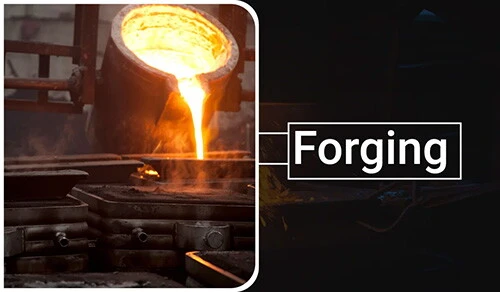What Makes the Forging Process Indispensable?

The significance of the forging process remains unparalleled in various industries, particularly in the automotive sector where components like crankshafts demand exceptional strength and precision. Forging stands out as a pivotal method for shaping block and bar steel, employing the force of strikes to mold materials into desired forms. Notably, hot forging, performed at temperatures above the recrystallization point, yields superior mechanical properties and near-final product shapes, making it indispensable for critical components like crankshafts.
Crankshafts, vital to converting linear piston motion into rotary motion within an engine, necessitate robustness and intricacy in design. As automotive technology advances, the demand for high-performance crankshafts intensifies, prompting a shift towards forged variants. Unlike cast counterparts, forged crankshafts boast heightened reliability and mechanical integrity, making them the preferred choice for modern automotive applications.
Traditionally, crankshafts were forged from heat-treated carbon and Cr-Mo steels. However, evolving industry requirements have spurred the adoption of non-quenched and tempered steels, including V-containing and V-free carbon variants. These materials not only optimize performance but also address cost concerns, aligning with the industry's pursuit of efficiency and sustainability.
Moreover, post-forging treatments such as high-frequency quenching, soft nitriding, and roll-pressing further enhance the fatigue resistance of critical crankshaft components. These processes, meticulously applied to areas prone to stress, underscore the inherent advantages of forging in producing components with superior strength and durability.
The forging process isn't solely about shaping; it's a culmination of meticulous material selection, precise design, and rigorous quality control. Heating forging blanks to approximately 1200°C enables the use of smaller equipment, facilitating greater precision and efficiency in production. However, achieving excellence in forged components necessitates a comprehensive approach encompassing material design, shape optimization, steelmaking, and systematic forging processes.
Despite the undeniable merits of forging, challenges persist, particularly concerning quality assurance. Ensuring integrity throughout the forging process is paramount, as any discrepancies in material composition or forging technique can compromise the final product's reliability and performance.
In conclusion, while advancements in manufacturing technologies continue to reshape industries, the irreplaceable role of forging, especially in crafting critical components like crankshafts, persists due to its unparalleled ability to deliver superior strength, reliability, and performance.

